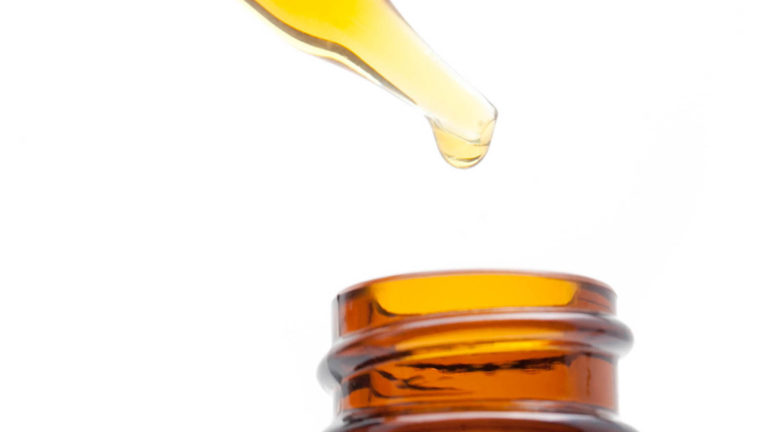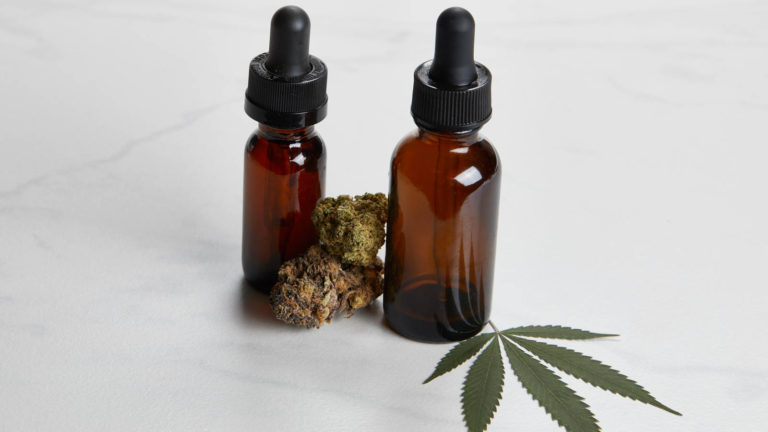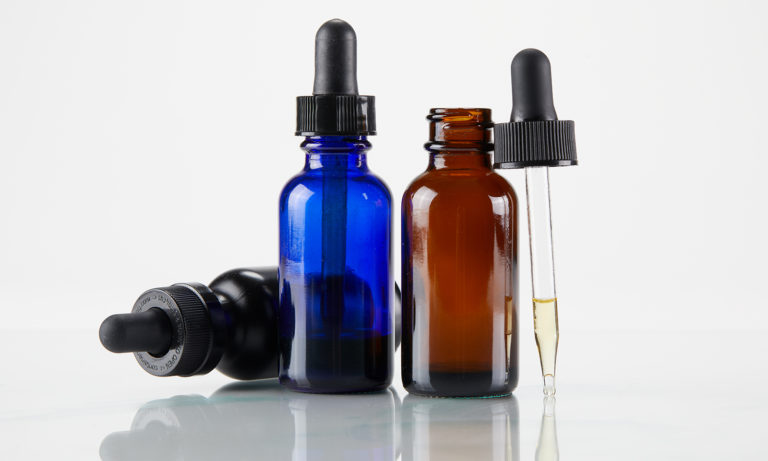CBD products are legal in Georgia, with the exception of CBD in foods, beverages, animal feed, or dietary supplements. The Georgia Hemp Farming Act, HB 213, which passed in May 2019, formally legalized the commerce of CBD products that conform with federal law requirements and contain 0.3% THC or less.
The cultivation, processing, and commerce of industrial hemp for commercial and research purposes was also legalized by HB 213. Georgia-based growers and processors cannot presently apply for licenses, however, until state lawmakers finalize licensing regulations.
Georgia has had a restricted medical marijuana program in place since 2015. Qualifying patients can access CBD-rich cannabis oil that contains 5% THC or less. Adult-use cannabis remains illegal. Several municipalities in Georgia have effectively decriminalized the possession of small quantities of cannabis.
What is CBD?
CBD is a non-intoxicating cannabinoid found in cannabis and the second-most prominent in the plant after THC, which is largely responsible for producing an intoxicating high. CBD can be sourced either from marijuana or hemp plants and has a wide range of potential therapeutic benefits.
To date, researchers have identified a number of potential applications linked to CBD, including anti-inflammatory, analgesic, anti-anxiety, and anti-seizure properties. Further, the chemical has shown promise in treating numerous health conditions, including seizure disorders, mood disorders such as depression, anxiety, and psychosis, chronic pain, and many more.
Most raw cannabis strains on the market today contain small amounts of CBD, especially compared with THC. But since the cannabinoid has gained considerable attention for its wide range of purported therapeutic benefits, more high-CBD strains have recently been cultivated.
 Photo by: Gina Coleman/Weedmaps
Photo by: Gina Coleman/WeedmapsImage lightbox

Why is CBD sometimes illegal?
All types of cannabis, including hemp strains that don't produce enough THC to cause intoxication, were considered illegal under the Federal Controlled Substances Act of 1970. The law categorized all cannabis as Schedule 1, which defined the plant as a highly addictive substance with a high potential for abuse and no accepted medical use.
The 2018 Farm Bill re-classified hemp as an agricultural commodity and made its cultivation federally legal. Further, the act removed some forms of cannabis from Schedule 1 status by creating a legal distinction between hemp and marijuana. Hemp is cannabis with less than 0.3% THC, and marijuana refers to cannabis with more than 0.3% THC. This distinction in federal law effectively legalized CBD that is derived from cannabis with less than 0.3% THC, as long as it has been cultivated according to federal and state regulations.
The 2018 Farm Bill legislation does not mean that CBD derived from hemp is universally legal throughout the United States. According to the Farm Bill, the Food and Drug Administration (FDA) has the power to regulate CBD product labeling, including therapeutic claims and the use of CBD as a food additive.
The FDA has declared that even hemp-derived CBD may not legally be added to food and beverages, or marketed as a dietary supplement. Although the organization has begun to re-evaluate some of its stances on legal CBD products, the FDA has not revised its regulations. The agency also has been strict in its position against any labeling that could be perceived as a medical claim about CBD.
In addition to the federal regulation of CBD, the Farm Bill also gave states the option to regulate and prohibit the cultivation and commerce of CBD. States may regulate CBD in food, beverages, dietary supplements, and cosmetic products independently, even before the FDA finalizes its policies. Georgia is a state that closely adheres to the FDA stance regarding CBD as an additive in food, animal feed or dietary supplements.
Georgia CBD laws
Until May 2019, only CBD products with zero percent THC were legal in Georgia. The passing of HB 213, also known as the Georgia Hemp Farming Act, permitted the in-state production, processing, and sale of hemp and hemp products, and redefined CBD to match the federal definition.
Georgians can now legally purchase CBD products containing no more than 0.3% THC by dry weight. The Georgia Department of Agriculture, which is responsible for the state's industrial hemp program, has released a declaration prohibiting the sale of CBD in food, drink, animal feed, or dietary supplements.
 Photo by: Gina Coleman/Weedmaps
Photo by: Gina Coleman/WeedmapsImage lightbox

In April 2015, Gov. Nathan Deal signed HB 1 into law. Also known as Haleigh's Hope Act, this legislation allowed the use of CBD-rich oil derived from cannabis that contained no more than 5% THC for patients with qualifying medical conditions. While the law created the skeleton of a medical marijuana program for patients, it didn't address how low THC oil would be produced, nor did it develop regulations around the purchase or transport of such products.
Haleigh's Hope Act ensured only that qualified patients would be safe from prosecution for possession of low THC oil. On April 17, 2019, Gov. Brian Kemp signed HB 324, Georgia's Hope Act, a bill that set up a regulatory system for the Georgia Department of Public Health (GDPH) to license and regulate the production and sale of low THC oil for patients. The bill allows for up to six private companies and two universities to grow and manufacture low THC cannabis oil.
Pharmacies will initially sell cannabis oil, and private dispensaries can apply for a license to distribute low THC oil to patients. Dispensaries are expected to open in 2020.
CBD is not permitted in smokeable form for patients or general consumers.
Licensing requirements for CBD
The Georgia Department of Agriculture (GDA) is responsible for the oversight of hemp cultivation and production in the state. The GDA is currently in the process of drafting regulations surrounding the licensure and rules of the hemp farming program.
Until the regulations have been released, no licenses will be issued. Only entities with a license from the GDA will be legally permitted to grow and process hemp and hemp-derived CBD. The cultivation of hemp without a license is illegal. Although the GDA is still drafting regulations, HB 213 outlines some preliminary guidelines for those who wish to cultivate hemp.
Applicants must undergo a criminal background check performed by local law enforcement. Those with convictions related to controlled substances are not eligible to apply for licenses. Applicants must be qualified with agricultural experience. Annual licensing fees cost $50 per acre, with a maximum fee of $5,000.00.
Written consent must be provided for the GDA to inspect premises where hemp is grown. Licensees must provide samples of hemp and hemp-derived CBD products through internal personnel or via independent lab testing contractors. Lab tests must prove that the sample contains no more than 0.3% THC. Crops with more than 0.3% THC must be destroyed.
Georgia CBD possession limits
Georgia has no possession limits on hemp-derived CBD products as long as the products contain no more than 0.3% THC by weight.
Georgia law authorizes the legal possession of up to 20 fluid ounces of low THC cannabis oil by qualified patients. The possession of any form of marijuana by an unauthorized person is a violation of state and federal law.
The penalty for possession of an illegal form of CBD product or cannabis scales depends on the amount in possession and whether there is an intention to distribute. Possession of more than 1 ounce is a felony punishable by up to 10 years in prison and $5,000 in fines.
Possession with intent to distribute is punishable by the same penalty tiers as the sale of illicit CBD or cannabis.
Where to buy CBD in Georgia
Georgia consumers can purchase hemp-derived CBD products from CBD-specific stores and health shops. While cafes and grocers may stock foods or beverages infused with CBD, the sale of these are prohibited by Georgia law.
 Photo by: Gina Coleman/Weedmaps
Photo by: Gina Coleman/WeedmapsImage lightbox

When purchasing from a storefront, particularly if the store specializes in CBD, you can receive guidance from an employee. Explain what you're looking for, your reasons for consuming CBD, and they can point you in the right direction.
Georgia residents can also buy hemp-derived CBD online, usually through specific brands' websites. You can also find verified CBD brands on Weedmaps. Reputable brands will generally provide you with essential product details, including the form of the CBD (such as oil, capsules, topicals, tinctures, etc.), the quantity of CBD the product contains, the other chemicals or ingredients present in the product, and more.
While many online checkout systems support US-based CBD sellers, some companies like Paypal consider CBD a “restricted business” and don't support online sales. Confirm the websites' checkout system before purchasing CBD online.
How to read CBD labels and packaging
The 2018 Farm Bill shifted the oversight of hemp and hemp-derived products from the U.S. Department of Justice (DOJ) to the U.S. Food and Drug Administration (FDA). The FDA does not presently allow CBD-infused food, drinks, or dietary supplements to be sold, and hasn't yet provided regulations for hemp-derived CBD products.
Still, the agency warns that regulations in flux still require companies to make legitimate claims on their labels. Buyers should nonetheless approach CBD products with caution. A CBD product should clearly state what kind of CBD is used.
Full-spectrum CBD oil means the extract contains cannabis-derived terpenes and trace amounts of cannabinoids such as THC. Broad-spectrum also includes other cannabis compounds but has had THC removed during the processing phase. CBD isolate is a pure crystalline powder containing only CBD.
Most reputable CBD producers typically include the following information on their CBD product labels:
- Amount of active CBD per serving.
- Supplement Fact panel, including other ingredients.
- Net weight.
- Manufacturer or distributor name.
- Suggested use.
- Full-spectrum, broad-spectrum, or isolate.
- Batch or date code.

